DESIBUZZCanada
Events Listings
Dummy Post

International Day Of Yoga To Be Virtually Celebrated Saturday At 4pm

CANCELLED: Coronavirus Fears Kills Surrey’s Vaisakhi Day Parade

ADVERTISE WITH US: DESIBUZZCanada Is The Most Read South Asian Publication Online

SURREY LIBRARIES: Get Technology Help At Surrey Libraries

WALLY OPPAL: Surrey Police Transition Update On Feb. 26

GONE ARE THE DAYS - Feature Documentary Trailer

Technology Help At Surrey Libraries

Birding Walks

Plea Poetry/short Story : Youth Contest

International Folk Dancing Drop-in Sessions
Ebrahim Jadwet: Scion Of Respected Business Family From Nicobar Islands Makes His Mark As A Networking Socialite In Canada
- October 29, 2016
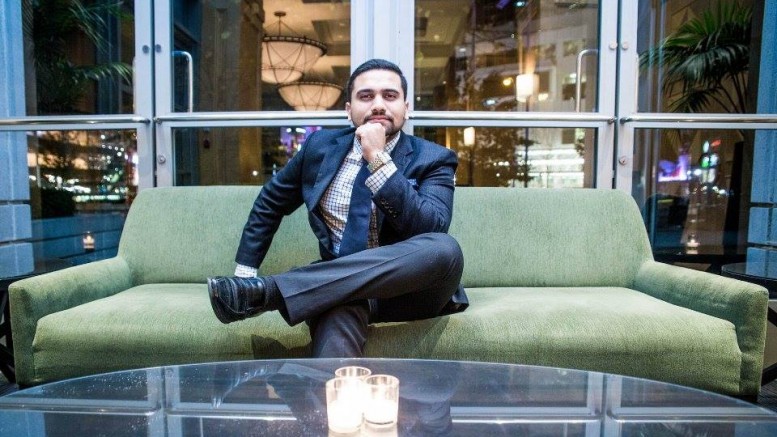
Posted By: DesiBuzzCanada October 29, 2016
Life Is beautiful, Live It, Love It, And Enjoy it – Jadwet Says!
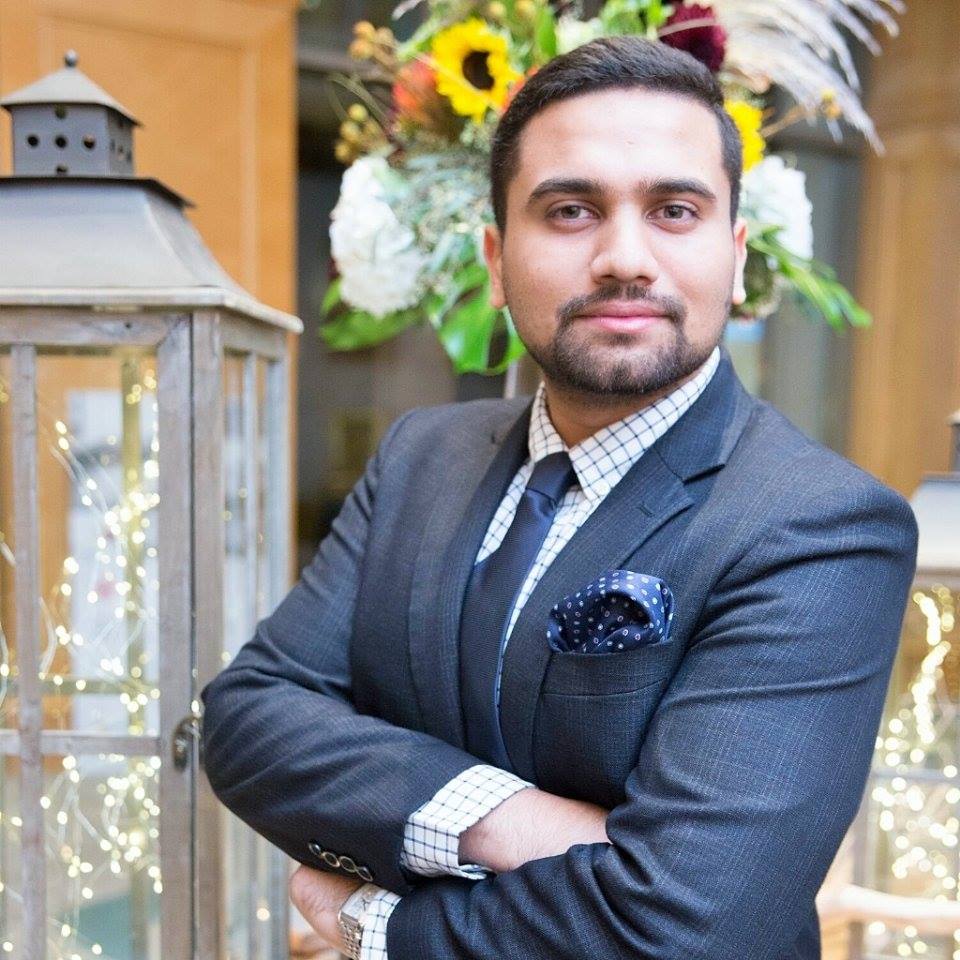 PHOTOS by Neelu Salaria
PHOTOS by Neelu Salaria
METRO VANCOUVER – Ebrahim Jadwet grew up in one of the most isolated territories in the world, the Andaman & Nicobar Islands. Hailing from a respected business family, which is one of the oldest and successful business families of the islands that traces its roots back to the 1900’s, Jadwet knows the high life that comes with wealth but he has also seen many ups and downs in life that he says has made him strong enough to tackle all the difficulties in life.
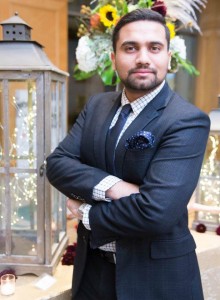 The tough times for the young Jadwet included seeing his parents separate and then divorce when he was at the tender age of 14. Being the only child it was devastating moment in his life, but he says he never allowed his tears roll down from his eyes and fall.
The tough times for the young Jadwet included seeing his parents separate and then divorce when he was at the tender age of 14. Being the only child it was devastating moment in his life, but he says he never allowed his tears roll down from his eyes and fall.
Coming from a conservative and orthodox background, divorces were not common in the family. He remembers being a shy, recluse boy who was shattered internally when his parents split.
“I was an average student with C grades mostly, but my heart never went for education or sports, neither I had any bad habits such as smoking, drinking, or usage of drugs,” Jadwet says. “I was a lost island boy. There were times when I felt very lonely and often felt my voice unheard among family members and friends.”
“What is the purpose of life?”, “why do not I have friends?” and “how can I achieve success in life?” were some of the questions that Jadwet struggled to answer.
‘These questions bothered me every day. I tasted my first sense of achievement when I scored 73% in my grade 12th. That was a great success for a student who averagely scored 45% all his life. I feel that was a turnaround point in my life that change my perspective of life,” Jadwet says.
 “At the age of 18, I came to Canada to pursuit my Bachelors of Commerce degree from University Canada West, and graduated in 2012 with an average GPA of 3.93. It is in his new homeland where he has excelled and become a networking socialite as he sets out to make the Jadwet family name proud.
“At the age of 18, I came to Canada to pursuit my Bachelors of Commerce degree from University Canada West, and graduated in 2012 with an average GPA of 3.93. It is in his new homeland where he has excelled and become a networking socialite as he sets out to make the Jadwet family name proud.
“Today, I am at the starting point of my career and preparing myself to embrace upon a life-long learning journey. I bravely express my opinion in my way, respect, meet, and greet with people from various cultural and religious background,” Jadwet says
He has served as the member of the Academic Council of University Canada West from 2010-2012, and as the youngest Honorary Secretary of Vancouver Multicultural Society from 2014-2015.
Jadwet believes there are three things that he has learned in his life that can help anyone achieve their dreams and fulfill their ambitions.
“Focus, Passion, and Dedication – To achieve anything in life we need to be focused on what we do and what we want. Often there are many distractions that will pullback us from the right path, but we need to be firm on the path we stick to. Never stand on two boats. Always try to complete one task at a time and then start the other one. Similarly, passion requires us to be focused. If we are not passionate and dedicated in our goals, it is very hard achieve results,” Jadwet says.
He believes it is very essential to have a role-model in life to which to look up to and he said they do make a difference.
“I grew up hearing the name of C.M. Jadwet (my great grand uncle), he was a successful and well respected businessman. I always had his stature as my destination and want to run a successful empire like him. I had many heros in life and I learned many positive things from each of them. Mr. Azim Premji of Wipro for his generosity, Mr. Touss Sepehr for style of dressing, Mr. Y.E. Jadwet for his patience, Mr. Ratan Tata for his commitment to achieve, Mr. APJ Abdul Kalam for his humbleness,” he says.
And failure is an inevitability but one has to learn from mistakes and as an young adult, Jadwet says the most common mistakes people make is the fear of failure.
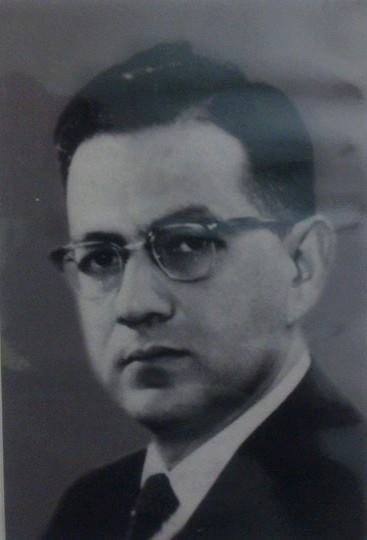 “I have always enjoyed failure as it is a moment of indication on my weaknesses and gives me signals to improve myself better for the next attempt. Failures teach us about ourselves and how we can be optimistic about it,” he said
“I have always enjoyed failure as it is a moment of indication on my weaknesses and gives me signals to improve myself better for the next attempt. Failures teach us about ourselves and how we can be optimistic about it,” he said
“Our world is one community and we all are humans first despite following different religions and customs. Life is too short , in today’s rush hour , we need to take some time for ourselves and for the community. Love every one and never hate anyone, you never know when you might need that person for a favor. Respect everyone’s individual opinion even if you do not like it. I had the greatest joy of my stay in Canada in understanding different cultures and tasting various cuisines from different countries. It has broaden my mind and made me realize that we might be of different colors but the fundamental foundation of every human being is the same.
“I feel blessed that at a very young age I have got many great friends, a great family, and inspirational mentors who always keep me going. I would certainly like to be known as a socialite for a good cause. Life is beautiful, Live it, Love it, and Enjoy it!”
WHO ARE THE JADWETS?
One name that the entire Andaman & Nicobar Islands firmly recognize since the beginning of the19th century is ‘AKOOJEE JADWET’. The Jadwet family played an important role in the development of socio-economic aspect of the islands in particularly the Nicobar group. In recent years the curiosity among people about knowing this successful family have increased. Hence, this article might give enlightenment to many of them about the untold Jadwet history.
The Jadwets were a successful Gujarati Muslim business family based in Burma (Myanmar) since the 1900’s. Originally hailing from Motavaracha village in Surat district of Gujarat, the patriarch of the family M.C. Jadwet had a flourishing business in major Burmese trade cities such as Rangoon, Moulmein, and Mergui. The influence of the family can be measured from the fact that they were the only
successful business family to obtain a 20 years lease of the Coco Islands (Burma) from the British Government. E.M. Jadwet (the oldest son of M.C. Jadwet) served as the Honorary Magistrate in the Burmese courts and was a respected figure.
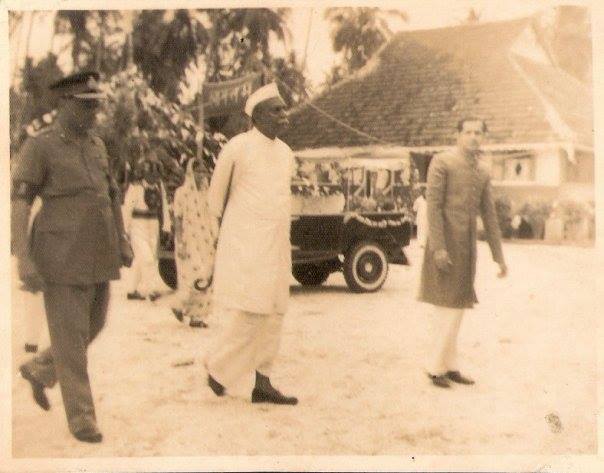
India’s first President Dr. Rajendra Prasad being welcomed by Mr. Y.M. Jadwet at the Jadwet residence, Carnicobar, in 1954.
Since the 1900’s , the Jadwet’s boats use to visit Nicobar Islands from Burma to obtain coconuts in exchange of essential commodities such as rice and grains, but the official connection with the Nicobars were formed after the second world war when the British government appointed the Jadwets as the trade agents for the entire Nicobar group. It was October 1945 when the Jadwet brothers Y.M. and C.M. arrived along with the Royal British Air Force and decided to set up their headquarters at Chukchucha Village, Car Nicobar. The family was given an absolute monopoly to do business in the islands and were charged one lakh rupees annually by the British government.
Both Y.M. and C,M. played an important role in the development of Nicobars and win the hearts of the Nicobarese community. It was them who introduced the concept of currency in the islands and abolished the barter trade system; and electricity for the first time in Nicobars were generated with the help of generator sets. The community elders like John Richardson, Rani Lachimi, Rani Changa, Edward Kutchet, and Thomas Halayinpa welcomed and supported the Jadwet brothers in introducing civilization to the islands.
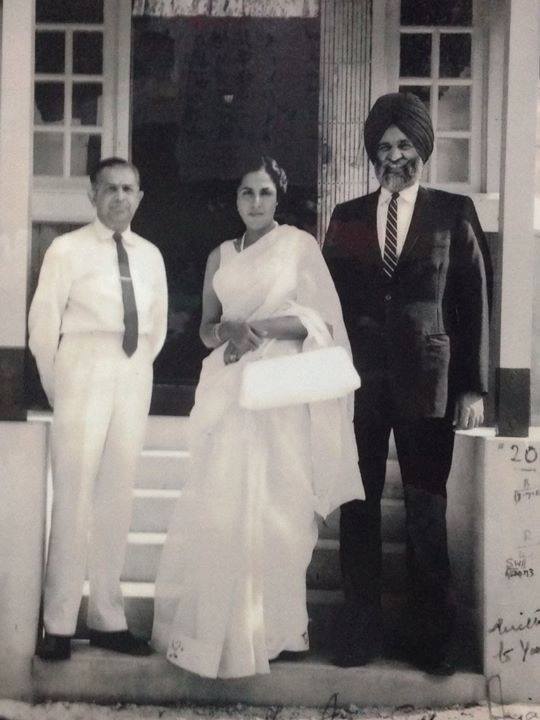
Indian Air Chief Marshal Arjan Singh and his wife with Mr. Y.M. Jadwet at Jadwet Bungalow, Carnicobar.
The Nicobar Islands were transferred to India in 1947 by the British Government. The Jadwets decided to stay back and started the cooperative movement in the islands. Car Nicobar Trading company was formed with 50% shares owned by the Jadwet and the remaining by the Nicobarese community. The company primarily dealt with coconut trade along with grocery stores in various islands. The CNTC later on went on to become EHL (Ellon Hinengo Limited) a central tribal cooperative society which still exists today and is the main lifeline of Car Nicobar Island.
The Jadwets helped the Indian government in providing transportation services to various parts of the islands. The Malacca general hospital building was donated by the Jadwet family to the people of Car Nicobar. Nicobarese spelling books were published by them and were circulated to every visitor so that the native language is promoted. The family’s influence politically grew and hosted many leaders to their bungalow such as Indira Gandhi, Rajiv Gandhi, Dr. Rajendra Prasad, Moraji Desai, Dr. Zakir Hussain, Air Marshal Arjan Singh and many more. Every major political decision in Nicobar would not be possible without an approval from the Jadwets. Basic infrastructure like roads, jettys, cinema hall, government buildings were all built by them, including the passa bridge.

















